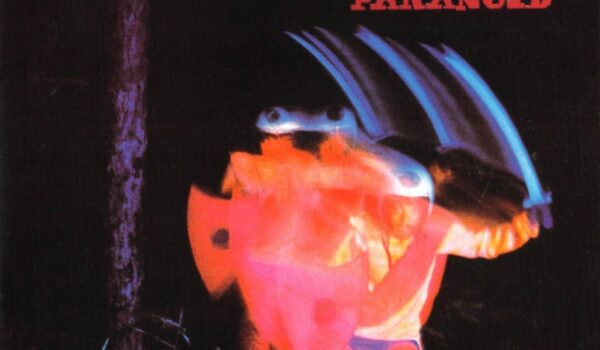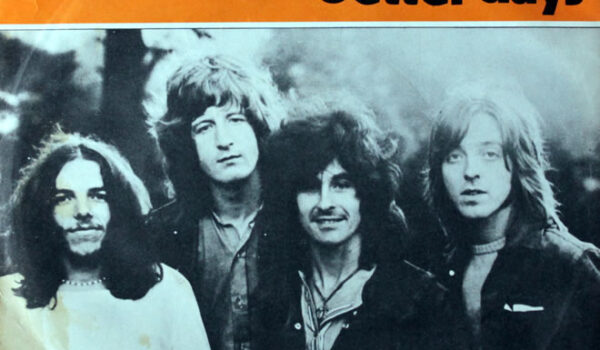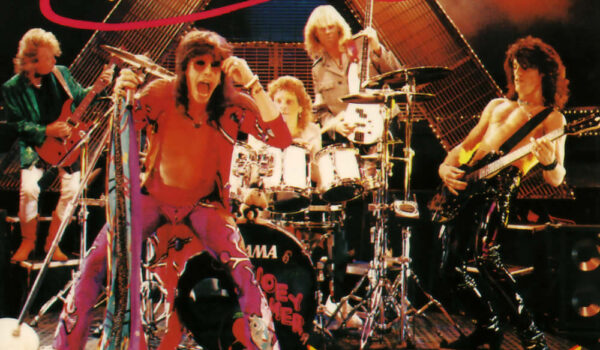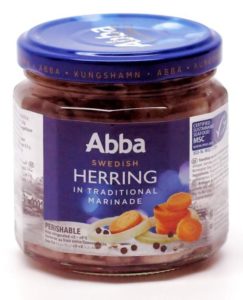Hallelujah
In 2008, X Factor winner Alexandra Burke had a Number 1 with this cover of the Leonard Cohen track originally released on his album Various Positions (1984). The original never charted, but following an outcry by fans, it did reach Number 36 the same week Alexandra’s went to Number 1 in the UK. Another cover by the late Jeff Buckley sat right behind Alex’s, but the X Factor star won the race, selling over 1.2 million copies. The song also found greater popular acclaim through a new version recorded by John Cale in 1991. Cale’s version inspired the 1994 recording by Jeff Buckley.
Killing Me Softly
In 1973 ‘Killing Me Softly with his Song’ became a number-one hit in the United States, Australia and Canada for Roberta Flack, and also reached number six on the UK Singles Chart and won the 1974 Grammy for Record of the Year and Best Female Pop Vocal Performance. Lauryn Hill’s powerful vocal plus, of course, Wyclef Jean saying “one time” in the background quite a lot – helped the Fugees’ version rocket to Number 1 for 5 weeks beginning June 1996. Their version also topped the charts in twenty countries and won the 1997 Grammy for Best R&B Performance by a Duo or Group with Vocal.
Lady Marmalade
A demo of the song was first recorded by The Eleventh Hour, a disco group made up of studio musicians. In 1975 LaBelle took the song to the charts. The song is famous for the repeated refrain of “Voulez-vous coucher avec moi?” in French as part of the chorus, a sexually suggestive line that translates into English as: “Do you want to sleep with me?”. Two alternate versions went to Number 1: first for British girl group All Saints in 1998, (which contains different lyrics for its verses) then a raucous team-up from Pink, Christina Aguilera, Lil Kim and Mya in 2001 which appeared as part of a medley in the Baz Luhrmann film Moulin Rouge!
Mad World
British group Tears For Fears took the song to Number 3 in 1982. Written by Roland Orzabal and sung by bassist Curt Smith, it was the band’s third single release and first chart hit. This cover and an appearance in the cult movie Donnie Darko sent it stratospheric. It’s not the most festive of themes, but Michael Andrews and Gary Jules’s stripped-down version of ‘Mad World’ scored the official Christmas Number 1 in the UK in 2003.
Without You
‘Without You’ was written by Pete Ham and Tom Evans of British rock group Badfinger, and first released on their 1970 album No Dice. The power ballad has since been recorded by over 180 artists. The two writers of the song, Ham and Evans, later committed suicide due to legal and financial issues. In Evans’ case, it was a dispute over songwriting royalties for “Without You” that precipitated his action. Harry Nilsson, at the time best known for his hit “Everybody’s Talkin’” heard Badfinger’s recording of “Without You” at a party, and mistook it for a Beatles song. He decided to cover the song for his 1971 album Nilsson Schmilsson and the single was released in the autumn of 1971 and peaked at the top of US chart in February 1972. The record spent five weeks at number one on the UK Singles Chart, eventually selling almost 800,000 copies. Mariah Carey‘s version, based on Harry Nilsson’s version rather than the Badfinger original, was released as the third single off Music Box in 1994 and peaked at number 1 on the UK chart.
Don’t Leave Me This Way
Originally released in 1975 by Harold Melvin & the Blue Notes featuring Teddy Pendergrass, and then Thelma Houston. The song was originally assigned to Diana Ross, it was intended to be the follow-up to her 1976 single “Love Hangover”, but was reassigned to Houston instead. Nine years later, Jimmy Somerville’s band the Communards made the song a Number 1 hit in the UK where it topped the Chart for four weeks in September 1986, becoming the best-selling single of the year in the UK.
Always On My Mind
Recorded by Brenda Lee and first released by Gwen McCrae (as “You Were Always on My Mind”) in March 1972. Lee’s version was released three months later in June 1972. Elvis Presley recorded “Always on My Mind” on March 29, 1972, a few weeks after his February separation from his wife, Priscilla. Willie Nelson recorded and released the song in early 1982 where it raced to number one on Billboard’s Hot Country Singles chart that May. Pet Shop Boys covered this classic in a TV tribute on the tenth anniversary of Elvis’s death in 1987, and never intended it to be a single. The general public, however, had other ideas, and demand was so high, the single was released midway through the campaign for the Pet Shop Boys’ second album Actually. It gave them a third chart-topper and was the UK Christmas Number 1 that year.
Tainted Love
“Tainted Love” is a song composed by Ed Cobb, formerly of American group the Four Preps, which was originally recorded by Gloria Jones in 1964, with renowned session musician and virtuoso guitarist Glen Campbell on lead guitar. A cover by British synthpop duo Soft Cell took the song into the UK’s Official Chart for the first time in 1981, going all the way to Number 1. It’s been covered by numerous artists since – including Marilyn Manson, who scored a Top 5 hit with it in 2002.
All Along the Watchtower
Bob Dylan was telling the story of a joker and a thief, and claimed that he thought of the song during a thunderstorm. Hendrix had been given a reel-to-reel tape of Dylan’s unreleased recordings by publicist Michael Goldstein and recorded the song. Released six months after Dylan’s rendition appeared on his eighth album, John Wesley Harding in 1967, Jimi Hendrix’s electrified version, recorded for the guitarist’s third and final album Electric Ladyland was released prior to his death in 1970.
I Will Always Love You
Dolly Parton famously wrote ‘I Will Always Love You’ within the same day as one of her other biggest hits ‘Jolene.’ Originally written in 1973 by Parton as a farewell to her former mentor and business partner throughout the ’60 and ’70s, the late Porter Wagoner. When the 1974 recording of the song reached number one on the country charts, Elvis Presley indicated that he wanted to record the song. Parton was interested until Presley’s manager, Colonel Tom Parker, told her that it was standard procedure for the songwriter to sign over half of the publishing rights to any song Elvis recorded. Parton refused. Nearly 20 years later Whitney Houston transformed it into the staple of one of the top-selling film soundtracks of all time for the 1992 film The Bodyguard, starring Houston and Kevin Costner. To date, Houston’s rendition of ‘I Will Always Love You’ has surpassed 1.1 billion views on YouTube.
Girls Just Want to Have Fun
Robert Hazard’s original version of ‘Girls Just Want to Have Fun’ was from the male perspective about women in the bedroom. But Lauper at the height of her ‘80s glory took the song and reinvigorated it with a playful feminist flair, transforming it into an eternal anthem for girls’ nights across generations. The track is a synthesizer-backed anthem, from a feminist perspective, conveying the point that all women really want is to have the same experiences that men can have.
With a Little Help from My Friends
Many artists have covered Beatles songs, it’s hard to improve on most but on this rare instance it happened. Joe Cocker knocked it out of the park with this one, taking a straightforward Ringo track from SSgt. Pepper’s Lonely Hearts Club Band and interlacing it with gospel backup, emotionally powerful vocals and a steady build into the stratosphere. Cocker used a slower tempo than the original and deployed different chords in the middle eight while adding a lengthy instrumental introduction. The recording featured drums by Procol Harum‘s B.J. Wilson, guitar lines from Jimmy Page. Cocker performed the song at Woodstock in 1969 and that performance was included in the documentary film, Woodstock. Two weeks later he performed it at the Isle of Wight Festival in 1969.
I Shot the Sheriff
The song was first released in 1973 on The Wailers’ album Burnin’. Bob Marley explained his intention: “I want to say ‘I shot the police’ but the government would have made a fuss so I said ‘I shot the sheriff’ instead… Eric Clapton recorded a cover version that was included on his 1974 album 461 Ocean Boulevard. His performance of the song adds soft rock to the reggae sound. It peaked at number one on the Billboard Hot 100, his only US number one to date. In 2003, Clapton’s version was inducted into the Grammy Hall of Fame.
Respect
‘Respect’ was written and originally recorded by American soul singer Otis Redding and released in 1965 as a single from his third album Otis Blue/Otis Redding Sings Soul and became a crossover hit for the singer. Two years later in 1967, fellow soul singer Aretha Franklin covered and rearranged ‘Respect’ and was featured on Franklin’s 1967 breakthrough Atlantic Records debut album, I Never Loved a Man the Way I Love You. When released as a single it topped the US chart and became her signature song. In 2021, when Rolling Stones updated The 500 Greatest Songs Of All Time Franklin’s cover of ‘Respect’ was moved up to number 1.
I Heard it Through the Grapevine
‘I Heard It Through the Grapevine’ was written by Norman Whitfield and Barrett Strong for Motown Records in 1966. The first recording of the song to be released was produced by Whitfield for Gladys Knight & the Pips and released as a single in September 1967. It went to number one on the Billboard R&B Singles chart and number two on the Billboard Pop Singles chart and shortly became the biggest-selling Motown single up to that time. The Marvin Gaye version was the second to be recorded, in the beginning of 1967 and was placed on his 1968 album In the Groove, a year and a half later. Motown founder Berry Gordy finally agreed to its release as a single on the Tamla subsidiary in October 1968, when it went to the top of the Billboard Pop Singles chart for seven weeks from December 1968 to January 1969, overtaking the Gladys Knight & the Pips version as the biggest hit single on the Motown family of labels up to that point.
The post Cover versions that made No.1. appeared first on This Day In Music.






Comments